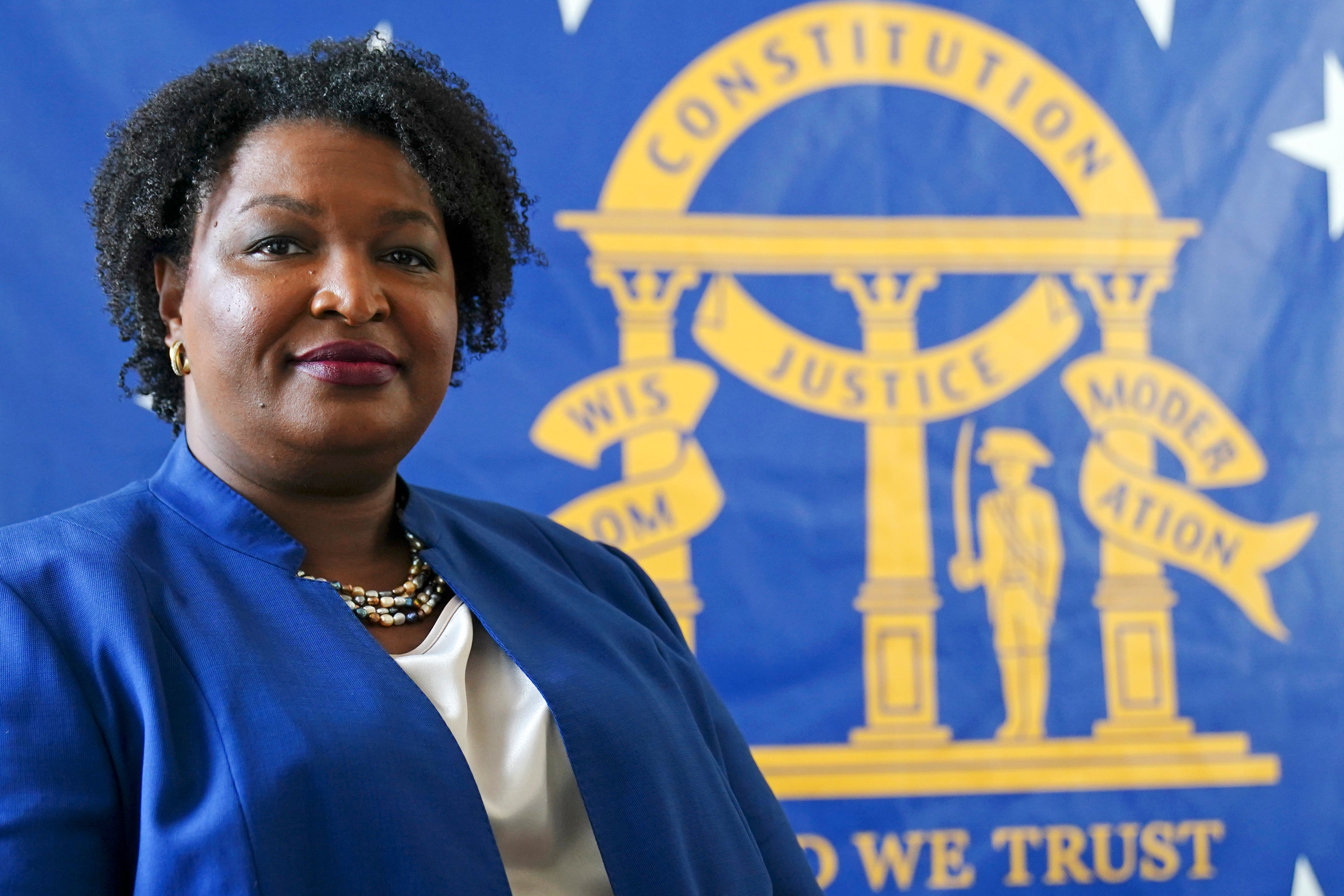Republican Brian Kemp defeats Stacey Abrams in Georgia governor’s race
GOP governor is re-elected as Abrams concedes in closely watched race
Your support helps us to tell the story
From reproductive rights to climate change to Big Tech, The Independent is on the ground when the story is developing. Whether it's investigating the financials of Elon Musk's pro-Trump PAC or producing our latest documentary, 'The A Word', which shines a light on the American women fighting for reproductive rights, we know how important it is to parse out the facts from the messaging.
At such a critical moment in US history, we need reporters on the ground. Your donation allows us to keep sending journalists to speak to both sides of the story.
The Independent is trusted by Americans across the entire political spectrum. And unlike many other quality news outlets, we choose not to lock Americans out of our reporting and analysis with paywalls. We believe quality journalism should be available to everyone, paid for by those who can afford it.
Your support makes all the difference.Georgia voters have re-elected Republican Brian Kemp in the race for the state’s governor, defeating Democratic candidate and prominent voting rights advocate Stacey Abrams a second time after their first matchup in 2018.
Ms Abrams conceded to the governor and offered her congratulations in her remarks to supporters on 8 November.
“I got into this for a fight for what we know to be true deep down in our bones .... that the people of Georgia deserve more,” Ms Abrams said. “I may no longer be seeking the office of governor, but I will never stop doing everything in my power to make sure the people of Georgia have a voice.”
Georgia has trended towards electing Democratic candidates following Mr Kemp’s election in 2018. President Joe Biden narrowly defeated Donald Trump in the state in 2020, the first time a Democratic candidate has carried the state since 1992. Voters also sent two Democratic candidates – Jon Ossoff and Raphael Warnock – to the US Senate
The 2022 race underscored the stark differences between the candidates and the parties they represent, from issues on gun control and healthcare to abortion rights and how the state could benefit from a budget surplus and critical federal funding.
After losing the governor’s race in 2018, Ms Abrams boosted her national profile as a voting rights advocate, drawing awareness to voter suppression efforts and combatting a wave of Republican-led plans to restrict ballot access across the US while Mr Trump promoted a baseless narrative of widespread voter fraud.
But closer to home, despite a well-financed campaign, she struggled to close a growing polling gap against her GOP opponent.
The governor, who has led the state while Republicans controlled the state legislature, has campaigned on what he characterised as his administration’s successes in the last four years, including dismissing public health guidance to keep businesses open during the Covid-19 pandemic and advancing gun rights legislation that allows residents to buy firearms without a permit.

He also has proposed giving residents additional tax breaks through a $6bn budget surplus, which Ms Abrams argued should be spent on expanding services.
In their first debate, Ms Abrams pointed to what she called the “state of fear” facing many Georgians that dominated the last four years since the candidates faced off in 2018 – gun violence, threats to abortion rights and rising housing and medical costs.
“Despite our differences, despite what people will tell us separates us, for the most part we want the same things,” Ms Abrams told supporters on election night.
“A Georgia where every person has a voice in our democracy and doesn’t have to show up early to make it so, because voting is a fundamental right, not a privilege for the wealthy few,” she added.
In his victory remarks to supporters, the governor said “it looks like the reports of my political death have been greatly exaggerated” as a crowd chanted “four more years.”


Join our commenting forum
Join thought-provoking conversations, follow other Independent readers and see their replies
Comments